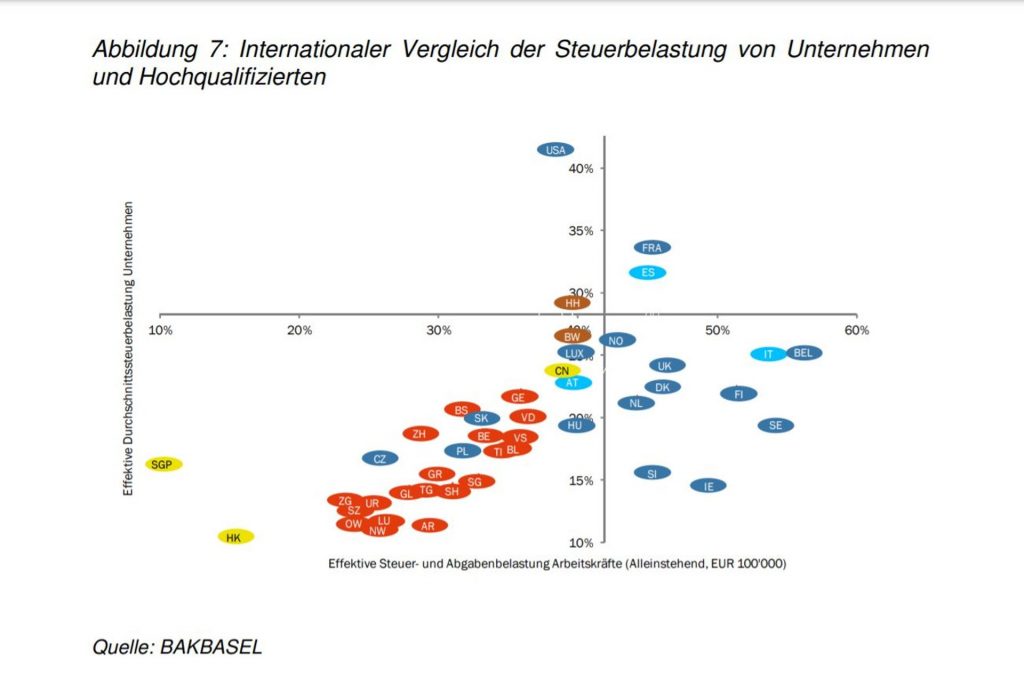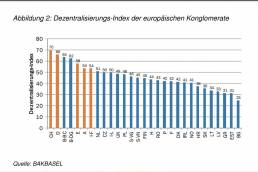More federalism means higher Gross Domestic Product
The outcome of an analysis by BAK Economics for the Assembly of European Regions and the Institut für Föderalismus on six leading territories between Baden and Friuli
A study by the Swiss institute BAK Economics examines the question of whether countries and regions with more competencies at their disposal can be more economically successful than others and which competencies are responsible for economic success.
The work is based, on the one hand, on a comprehensive study by the established Basel-based study center entitled “Through Subsidiarity to Success”, which was carried out on behalf of the Assembly of European Regions (AER), and, on the other hand, on a comparison of the competencies of six European regions with above-average success in five countries, which was specially packaged for the Institut für Föderalismus in Innsbruck in collaboration with the Foster Europe Foundation.
Under the lens of Peter Bußjäger, Georg Keuschnigg and Stefan A. Lütgenau were Baden-Württemberg for Germany, Aargau for Switzerland, Catalonia for Spain, Friuli-Venezia Giulia for Italy and Salzburg and Tyrol for Austria.

A poker of attributes always needed for comparison
Four areas of competence were identified for comparison: those of taxation at the regional level, as well as decision-making and implementation competencies in the policy areas of infrastructure, education and research, and the ability to shape the quality of life of residents.
Simply put, the study concludes that there is an important direct connection between competencies, understood as a region’s ability to determine its own legislation, and prosperity, but that there is also a diminishing marginal benefit of decentralization and that an optimal mix of competencies conducive to success can be identified.

What is the optimal interaction between the state and local levels?
This article moves into an area that has received too little attention from scholarly research to date. What are the affirming factors in the further development of regional living spaces? Who is responsible for economic development: the nation state or the regions? How should the optimal interaction between the state and local levels be designed?
Basing the question on the Austrian examples: is Tyrolean tourism part of a global competition or is Austrian tourism in a broader sense? It is “the highly specialized” that is probably the right answer.
Is Tyrolean winter tourism the engine of development, or is the average tourism of Tyrol, Upper Austria and Burgenland together? The same applies to the industrial position of the second of these territories or to city tourism in Vienna.
Upstream is the question of the regions’ ability to shape themselves and reality. The Tyrolean services market has a completely different need for regulation and organization than the commercial and industrial area of Upper Austria.
Are the two regions and their needs best served by an Austrian labor market administration, which inevitably must create a uniform framework for all? Or is a central regional economic development agency needed?
If one assumes that the success of the most prosperous regions is also good for the overall national outcome, one should think more intensively about the tools that the regions need to be able to make the most of the conditions that exist there.
Swiss monuments? A “hidden” treasure to be exploited….
Athenian democracy? Revive between Glarus and Appenzell…
The Europe of the small States and a federalism barely sketched out …
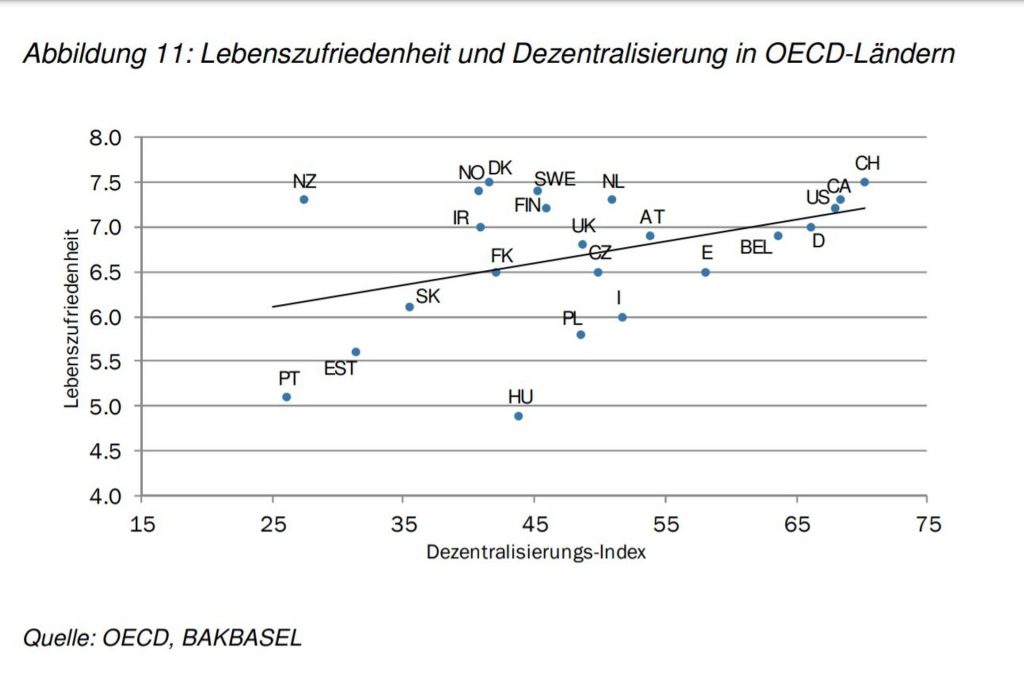


A special decentralization index to refine research
A glance at the decentralization index compiled in Basel by BAK Economics alone shows the functions involved. It distinguishes between administrative decentralization (management), functional decentralization (decision-making and implementation powers), political decentralization (regional influence and its instruments), and financial decentralization (revenue and expenditure sovereignty).
As a single example of the way “regional forces” act, consider the research methodology. BAK Basel tried to use objective criteria (Shanghai index, number of patents, etc.) to determine how centrally or decentralized research should be deepened locally.
The result: basic research requires the pooling of scientific and financial resources and is better regulated and supported centrally.
Applied research, on the other hand, draws impetus from close feedback with the regional economy and produces better results if it is decentralized.
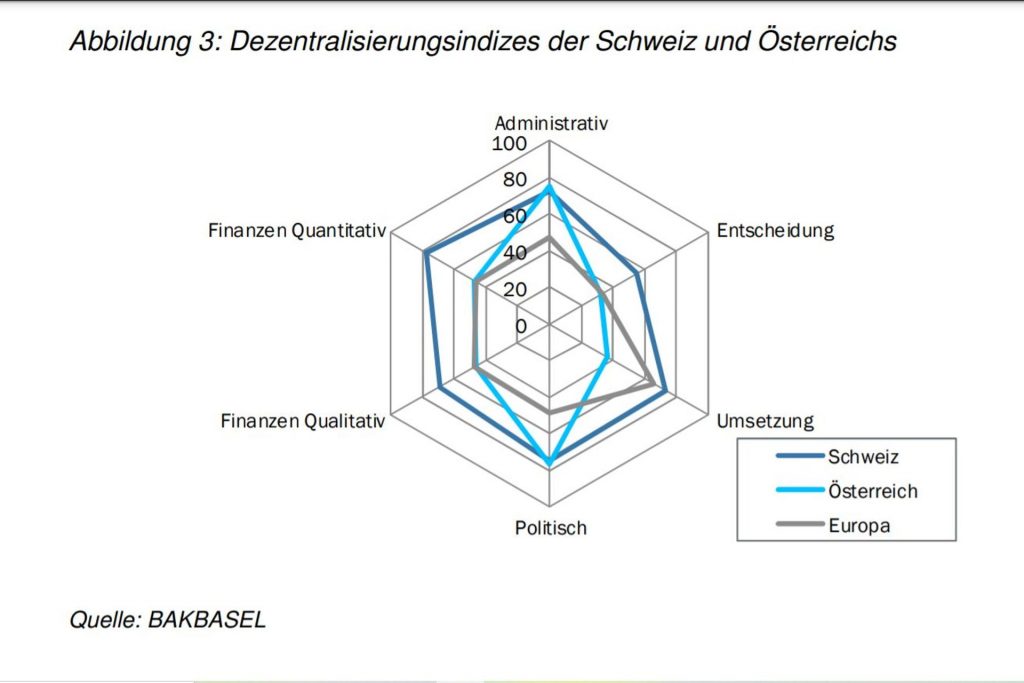
Direct correlation between federalism, decentralization and welfare
The conclusions drawn from the work of BAK Economics are quite enlightening. The countries that lead the index of political and administrative decentralization are all organized as federal nations and are also among the world leaders in economic terms: Switzerland, Germany, the United States, Canada, and Belgium.
The fact that Austria has a federal constitution, but that it is implemented in a highly centralized manner, stands out in the comparison of the six European regions, as does the fact that the regions of Europe’s leading federal countries, Germany and Switzerland, also lead this ranking.
The overall statement is also explosive: countries with a higher decentralization index also have a higher Gross Domestic Product.
Switzerland and the “fantastic four” of direct democracy
The Ethics of Competitiveness and the Spirit of Federalism
Waldstätte and the “forest” cantons at the dawn of Swiss…

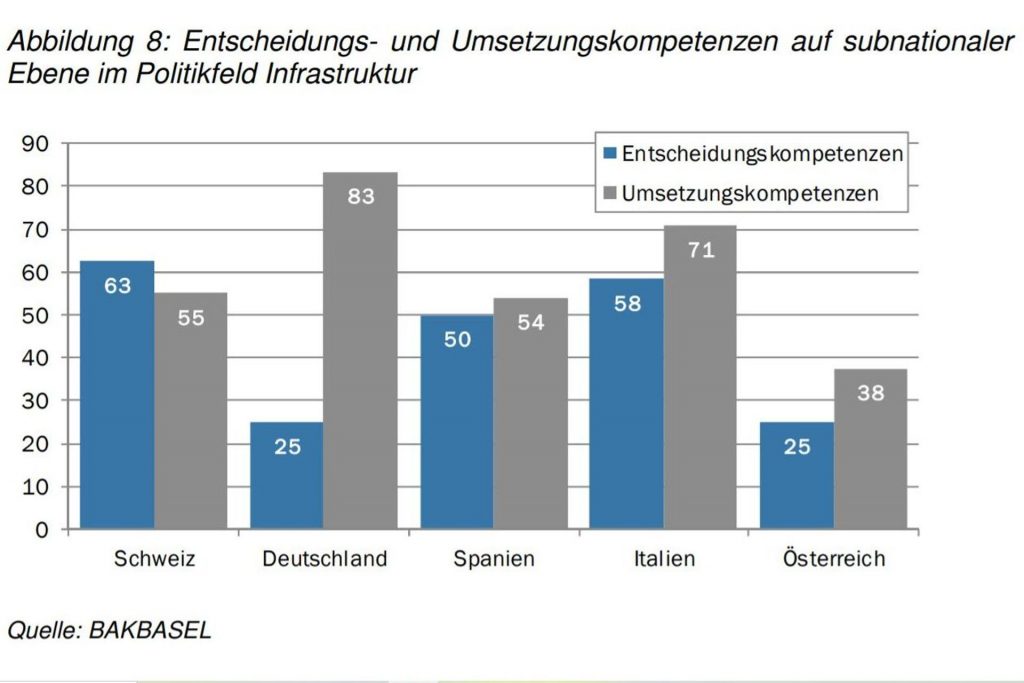
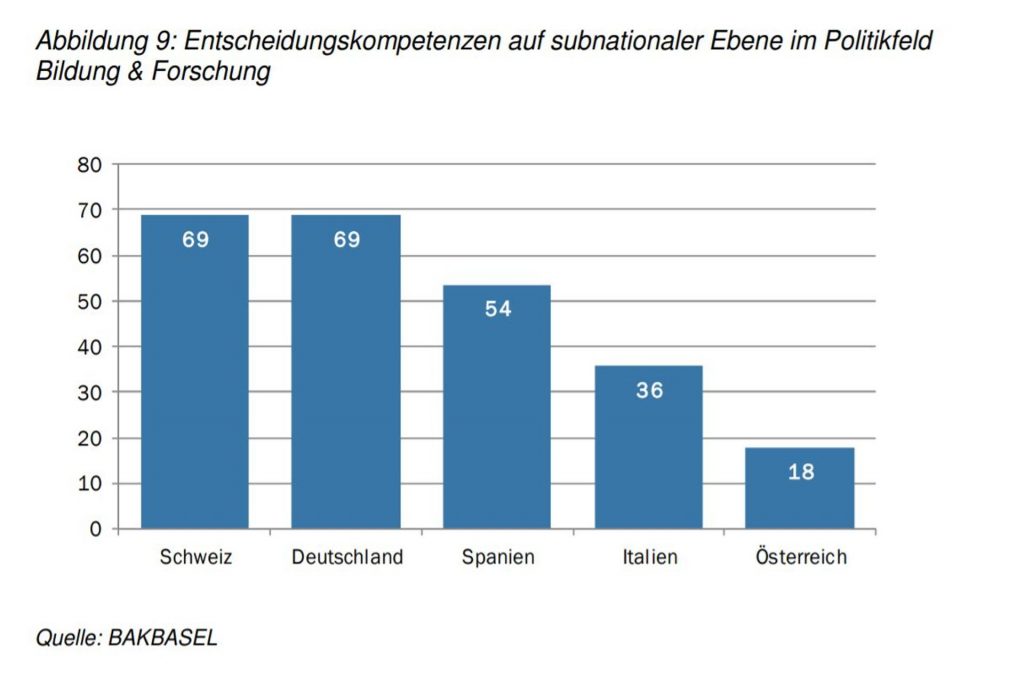
Choosing independently is better than implementing someone else’s decisions
A truism, yet one of great importance, is the indication that the competence to make decisions independently has a more positive influence on the outcome than simply implementing decisions made elsewhere.
In its study “The Federal Government and its Departments,” the Institute of Federalism in Innsbruck examined, among other things, the economic significance of the location choices of the public administration.
With the work presented, the IFÖ places further emphasis on the interaction between governance and regional policy and actual localization, which is worth reading carefully even though it is written in German.
The Presidency of the Swiss Confederation from 1848 to the present day
